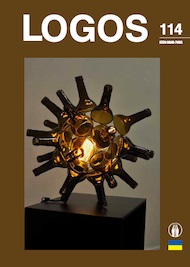Menonas: dorybė kaip δόξα Ἀληθησ
Meno: Virtue as Δόξα Ἀληθὴς
Author(s): Skirmantas JankauskasSubject(s): Epistemology, Political Philosophy, Ancient Philosphy
Published by: Visuomeninė organizacija »LOGOS«
Keywords: virtue; right opinion; (true) knowledge; political activity; divine dispensation;
Summary/Abstract: The article is an interpretation of the fourth part of the Meno (96d–100a), in which Plato continues his investigation into the nature of virtue. Having established in the third part of the dialogue (86c–96c) that virtue cannot be learned and therefore cannot belong to the domain of (true) knowledge (ἐπιστήμη), the question arises as to how eminent men of antiquity could have given the impression that they were guided by virtue in their political activities. The answer is found by drawing attention to the distinction that was exploited in early philosophy, i.e., to the distinction between opinion (δόξα) and (true) knowledge (ἐπιστήμη). Since the Sophists had rehabilitated the realm of opinion, which had been devalued by the early philosophers of antiquity, Plato concludes that the reputable politicians of antiquity may have been guided by right opinion (δόξα ἀληθὴς). This notion implies the mere knowledge of the correct instructions for action and is therefore considered to be a form of knowledge, albeit correct, but incomplete. In Meno, Plato still hopes that by means of anamnesis, i.e., by the way of reconstructing the logical connections between right opinion and (true) knowledge, it is in principle possible to transform the first kind of knowledge into the second. The paper demonstrates that Plato’s reasoning on the relation between the two kinds of knowledge raises a few questions. It is shown that analytically revealed contradictions in Plato’s reasoning are due to the assumption, which is characteristic of the ancient way of thinking, namely, the assumption of a logical connection between imagination and thought. The paper concludes by showing how the abandonment of this assumption would deconstruct the fundamental constructs of Platonic philosophy.
Journal: LOGOS - A Journal of Religion, Philosophy, Comparative Cultural Studies and Art
- Issue Year: 2023
- Issue No: 114
- Page Range: 6-17
- Page Count: 12
- Language: Lithuanian

